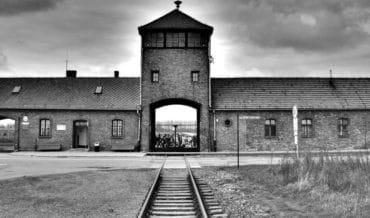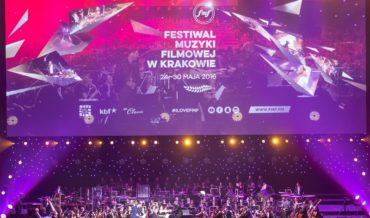Contents
Key Facts
• Born: January 23, 1905 in Warsaw, died: December 6, 1953 in Warsaw¹
• Profession: Poet, translator, satirist, and playwright
• Education: Classical and English philology at the University of Warsaw²
• War experience: Spent WWII in German prisoner-of-war camps (1939-1945)³
• Krakow period: Lived in the city from 1946-1950 with his family⁴
• Major collaborations: "Przekrój," "Tygodnik Powszechny," and cabaret "Zielony Balonik"⁵
• Legacy: One of Krakow's streets bears his name (ul. Gałczyńskiego)
• Famous for: Poems expressing deep longing for Krakow, including "Zaczarowana Dorożka"
Early Life and Education
Konstanty Ildefons Gałczyński was a prominent Polish poet, translator, and satirist born on January 23, 1905 in Warsaw. His early intellectual development was shaped by his comprehensive education in classical and English philology at the University of Warsaw, which would later influence his sophisticated approach to poetry and translation work⁶. This classical foundation provided him with a deep understanding of literary traditions that became evident in his later works, particularly his masterful use of irony and linguistic playfulness. Gałczyński would later become one of the most celebrated famous Polish people, remembered for his extraordinary literary contributions.
Pre-War Literary Career
During the interwar period, Gałczyński established himself as a versatile writer, collaborating with various magazines including "Cyrulik Warszawski" and "Prosto z mostu", among others⁷. These publications served as platforms for his early satirical works and poetry, helping him build a reputation in Polish literary circles. His contributions showcased his wit, linguistic prowess, and keen observation of contemporary social and political issues, establishing him as one of the most promising voices of his generation.
War Years and Imprisonment
The outbreak of World War II dramatically altered Gałczyński's life trajectory. He spent the entire war period in German prisoner-of-war camps (1939-1945), including Oflag II-C Woldenberg and other facilities⁸. This experience of forced exile profoundly impacted his worldview and later literary output. Despite the harsh conditions and separation from his homeland, this period would later inspire some of his most poignant works about longing, memory, and the meaning of home.
The Krakow Years (1946-1950)
Arrival and Settlement
Gałczyński moved to Poland in 1946, choosing Krakow as his new home, where he lived with his wife Natalia and their children during what would prove to be his most productive literary period⁹. This decision to settle in Poland's former royal city rather than return to his native Warsaw proved artistically significant, as the city's rich cultural atmosphere and historical significance deeply influenced his work. The intellectual environment fostered by institutions like Jagiellonian University provided the perfect backdrop for his creative endeavors.
Professional Collaborations
During his Krakow period, Gałczyński became a regular contributor to several prestigious publications:
- "Przekrój" – A widely-read weekly magazine founded by Marian Eile, where his satirical pieces and poems reached a broad audience¹⁰
- "Tygodnik Powszechny" – A Catholic intellectual weekly that published his more serious literary works¹¹
Cabaret Involvement
One of the most distinctive aspects of Gałczyński's Krakow years was his collaboration with local cabarets, particularly "Zielony Balonik"¹². This partnership allowed him to explore theatrical and performance aspects of his creativity, writing sketches, songs, and satirical pieces that were performed live. His cabaret work demonstrated his versatility as a writer and his ability to connect with audiences through humor and social commentary.
Literary Legacy and the Krakow Connection
Poems of Longing
After leaving Krakow in 1950 to live in various locations including his final years in Pranie near Warsaw, Gałczyński wrote some of his most memorable poems filled with deep longing for Krakow¹³. These works, including the famous "Zaczarowana Dorożka" (The Enchanted Cab), captured the essence of the city that had become so dear to him, from the historic charm of the Old Town to the bustling energy of Main Square. The poems expressed not just personal nostalgia, but also a profound understanding of Krakow's unique character and its role as Poland's cultural heart, even referencing peaceful walks through the Planty gardens and the diverse cultural landscape of districts like Kazimierz district.
As literary critic Kazimierz Wyka noted: "Gałczyński possessed an extraordinary ability to transform the concrete reality of Krakow into poetic metaphor, creating verses that speak to the universal human experience of place and belonging."¹⁴
Permanent Place in Polish Literature
These Krakow-inspired poems became permanently inscribed in Polish poetry, representing some of the finest examples of urban poetry in Polish literature. They demonstrate how a city can become not merely a backdrop, but a living character in literary works. His poetic style, characterized by surrealistic imagery, linguistic innovation, and emotional depth, influenced generations of Polish poets. His work captured not only the physical beauty of landmarks like Wawel Castle but also the spiritual essence that would later inspire other great figures associated with the city, such as John Paul II.
Recognition and Commemoration
Street Naming
The city of Krakow has honored Gałczyński's memory by naming ul. Gałczyńskiego after him¹⁵. This street, located in the Krowodrza district, reflects the lasting impact he made during his residence in the city and acknowledges his role in documenting Krakow's unique spirit through his poetry.
Cultural Impact
Gałczyński's work continues to influence contemporary Polish literature and maintains a special place in Krakow's cultural consciousness. His ability to capture the essence of the city through verse has made him an integral part of Krakow's literary heritage, alongside other great writers who found inspiration in this historic city. Today, his legacy is celebrated alongside the city's vibrant cultural scene, including cultural festivals and rich institutional landscape of museums that continue to inspire artists and writers.
Death and Legacy
Gałczyński died on December 6, 1953, and was buried in Powązki Cemetery in Warsaw¹⁶, bringing full circle a life that began and ended in Poland's capital but found its most profound artistic expression through his deep connection to Krakow. His relatively short life span of 48 years was marked by intense creativity, particularly during his Krakow period.
The poet's legacy extends beyond his literary output to encompass his role as a cultural innovator, connecting traditional Polish literary forms with modernist sensibilities. His work demonstrates how personal experience of place can be transformed into universal art that continues to resonate with readers about the meaning of home, belonging, and cultural identity.
References
- Polski Słownik Biograficzny, vol. VII, Kraków 1948-1958
- Archiwum Uniwersytetu Warszawskiego
- Documentation from Oflag II-C Woldenberg, held at Institute of National Remembrance
- Kraków City Archives, residential records 1946-1950
- Przekrój magazine archives, National Library of Poland
- University of Warsaw Alumni Records
- Cyrulik Warszawski archive, National Library of Poland
- German POW camp records, Institute of National Remembrance
- Kraków residential registration, 1946
- Przekrój magazine editorial records
- Tygodnik Powszechny archives, Kraków
- Zielony Balonik historical records, Historical Museum of Kraków
- Correspondence collection, National Library manuscript department
- Kazimierz Wyka, "Rzecz wyobraźni," PIW, Warszawa 1959
- Kraków City Council resolution on street naming, 1957
- Powązki Cemetery burial records, Warsaw

